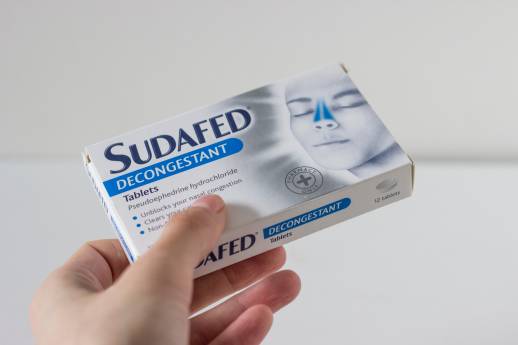Tylenol (also known as acetaminophen) is a common ingredient in many of our medicine cabinets. This is a medication that’s used to relieve pain and lower fevers. It’s common taken for a wide range of human medical health issues such as arthritis, colds, flu, and more.
Connect with a verified veterinarian in minutes. Licensed vets are available 24/7 to answer your questions. No need to worry about your furry family member.
While this is a medication that’s excellent for humans (at the correct dosage), Tylenol can be toxic to dogs.
Acetaminophen Toxicity in Dogs
Accidents can happen if we drop a pill and don’t see where it rolled. Or your fur baby may see the bottle sitting where he can reach it. The bottle may resemble a toy and the dog may just want to play with it, chewing through the bottle and eating the pills inside. No matter how a dog gains access to Tylenol, the fact is that this is a medication that can be very dangerous for dogs.
The issue with acetaminophen toxicity in dogs is that the medication can cause liver damage, which is not repairable. The most common symptoms of Tylenol poisoning in dogs includes:
- Difficulty breathing
- Swollen face, limbs, neck
- Hypothermia
- Vomiting
- Jaundice (yellow coloring to skin, whites of eyes)
- Brown to gray colored gums
- Abdominal pain
- Excessive drooling
- Refuses to eat
- Coma
If you know for sure, or even suspect, that your dog has ingested Tylenol, then call the vet or the Pet Poison Control Helpline as soon as possible. This is a medical emergency.
Diagnosis & Treatment of Acetaminophen Toxicity in Dogs
Before heading to the vet, be sure to take the pill bottle with you and try to determine how many pills are missing. This information will help the vet calculate how much of the medication your dog has ingested.
At the vet’s, they will do blood work to check for liver damaged and will perform a physical exam. Treatment usually includes supplemental oxygen, IV fluids, and medications that work to reduce liver damage. These medications may include vitamin C, cimetidine, and N-acetylcysteine. The first two medications can reduce toxic levels of the Tylenol in the body, while the last medication can repair some of the liver damage.
Your dog’s prognosis depends on how much of the medication he ingested. One thing we can say is that dogs who receive fast treatment have a better chance of surviving acetaminophen toxicity.
The best way to keep your fur baby from having this problem is to ensure all medications are kept out of his reach. If you drop a pill, then search for it right away. And never give your dog Tylenol, unless directed to do so by the vet.
Connect with a verified veterinarian in minutes. Licensed vets are available 24/7 to answer your questions. No need to worry about your furry family member.

Tom
Tom has always loved to write since he was little - he wanted to be either a writer or a veterinary doctor, but he ended up being a professional writer while most of his works are based on animals. He was born in San Francisco but later moved to Texas to continue his job as a writer. He graduated from the University of San Francisco where he studied biotechnology. He is happily married and a soon to be father!
Review symptoms, medications & behavior to keep your pets healthy with a Vet Online in just minutes.
Ask a Vet Live Now




